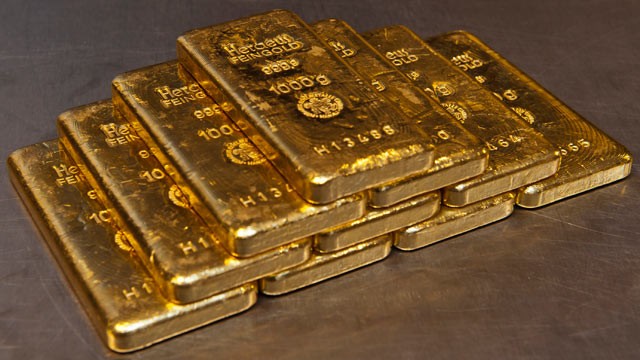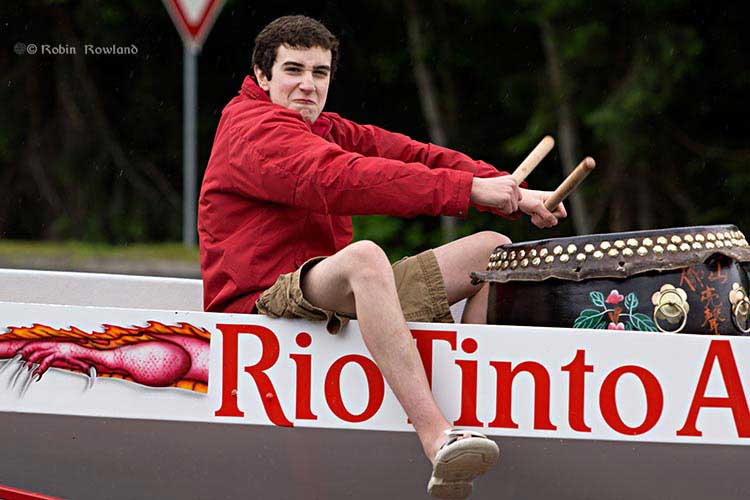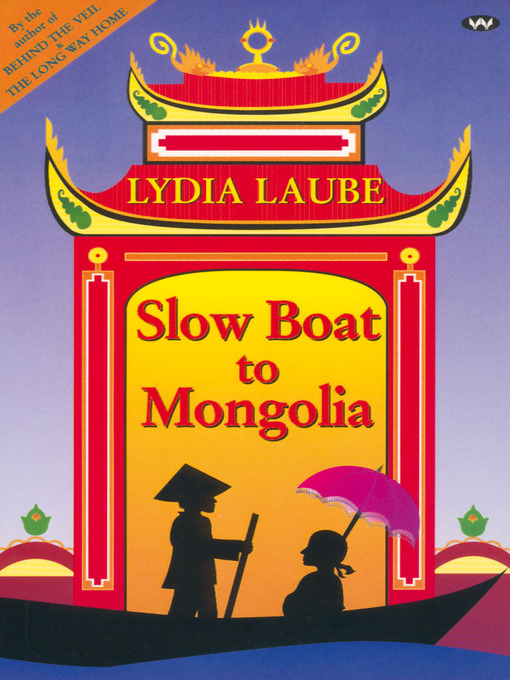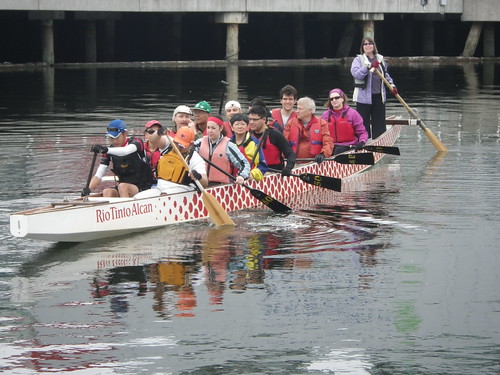Mongolia and Rio Tinto
“are sitting in the same boat,”
Economic prosperity
 Sustainable development is underpinned by sustainable
economies. We use our economic, social, environmental and technical
expertise to harness mineral resources, thereby creating prosperity for
our shareholders, employees, communities, governments, and business
partners.
Sustainable development is underpinned by sustainable
economies. We use our economic, social, environmental and technical
expertise to harness mineral resources, thereby creating prosperity for
our shareholders, employees, communities, governments, and business
partners.The mineral wealth associated with mining has the potential to serve as a catalyst to bring significant social and economic benefits to Mongolia. Our Investment Agreement with Turquoise Hill Resources (formerly Ivanhoe Mines) and the Government of Mongolia represents an opportunity to create sustainable economic growth that will benefit the people of Mongolia.
Economic impact of Oyu Tolgoi
Rio Tinto is making the largest single investment in Mongolian history and is partnering with the Government and people of Mongolia for the long term. More than US$6 billion will be invested by the time the mine begins commercial production in 2013.Rio Tinto is helping develop Mongolia's mining industry and driving economic growth in Mongolia. The production of copper and gold from Oyu Tolgoi will have a large, long-lasting and positive effect on the economy of Mongolia, increasing GDP by 35 per cent by 2020. The Mongolian Government will receive more than 55 per cent of profits and up to 71 per cent of cash flow from the mine over the lifetime of the project. Growth in manufacturing, construction, services and agriculture will also be stimulated by Oyu Tolgoi's impact on the national economy.

Oyu Tolgoi quick facts and numbers
- 7.8 trillion MNT (US$ 6.2 billion) – Estimated investment to develop the 1st stage of Oyu Tolgoi project.
- 1.058 trillion MNT (US$ 803 million) – Taxes and payments to the Government of Mongolia from January 2010 through November 2012.
- 1.4 trillion MNT (US$ 1.1 billion) – Product and services purchased from Mongolian supplier companies in 2010-2012.
- 35 % – Expected GDP growth when Oyu Tolgoi is fully operational in 2020.
- 11,151 – Number of Mongolians employed at Oyu Tolgoi project scale as of 31 January, 2013.
- 87.57 % – Percent of Mongolian employees at Oyu Tolgoi LLC as of 31 January, 2013.
- 90 per cent – Committed percent of Mongolian employees to work at Oyu Tolgoi during the operation.
- No less than 70 % – Percent of Mongolian engineers during operation.
- 168 billion MNT (US$ 126 million) – Investment by Oyu Tolgoi in education and training in Mongolia.
- 3,300 – Trainees across 21 aimags with Oyu Tolgoi financial support.

'Common ground' sought in mega-mine dispute
Mongolia, Rio Tinto both have reasons to settle in time to meet June deadlineA cost overrun of a couple of billion bucks at Oyu Tolgoi (Turquoise Hill), Mongolia’s new mega-mine, is no doubt significant even to a big company such as Rio Tinto with sales last year topping $50 billion.
But to a “little” country like Mongolia – which may have a land mass about twice the size of B.C., but has barely more than half the number of people and a much smaller fraction of our wealth – it’s a staggeringly large sum. It accounts for fully a fifth of last year’s GDP – in relative Canadian terms, the equivalent of about $350 billion.
Which goes a long way to explain the tension between the company, a two-thirds partner in Vancouver-based Turquoise Hill Resources, which owns the just-opened world’s largest copper mine in remote Mongolia, and the country, which has a 34-per-cent stake.
Mongolia’s parliament signed on in 2009 to borrow a third of the money to fund a $4.2-billion project, says parliamentary president Zandaakhuu Enkh-bold, who was in Vancouver last week at the end of a cross-Canada visit.
“If at that time they had told us the cost will be $6.2 billion, then we would have thought twice,” he said in an interview with The Vancouver Sun.
Now that the costs have escalated so steeply, “We want to know how it happened. How much? Spent where?”
The huge proportion of Mongolia’s wealth tied up in this single project also explains why the country is so optimistic and so determined to see the dispute end well, and end soon.
Mongolia and Rio Tinto “are sitting in the same boat,” he said. “Either one can shake the boat if we have a disagreement. But we can’t overturn the boat. We both will die.
“So we need to find common ground, which is the (parliament’s) No. 1 priority today.”
He said he was confident that agreement would be reached in time to meet a June deadline for the first export of copper from the mine.

A cost overrun of a couple of billion bucks at Oyu Tolgoi (Turquoise Hill), Mongolia's new mega-mine, is no doubt significant even to a big company such as Rio Tinto with sales last year topping $50 billion.
But to a "little" country like Mongolia - which may have a land mass about twice the size of B.C., but has barely more than half the number of people and a much smaller fraction of our wealth - it's a staggeringly large sum. It accounts for fully a fifth of last year's GDP - in relative Canadian terms, the equivalent of about $350 billion.
Which goes a long way to explain the tension between the company, a two-thirds partner in Vancouver-based Turquoise Hill Resources, which owns the just-opened world's largest copper mine in remote Mongolia, and the country, which has a 34-per-cent stake.
 Mongolia's parliament
signed on in 2009 to borrow a third of the money to fund a $4.2-billion
project, says parliamentary president Zandaakhuu Enkh-bold, who was in
Vancouver last week at the end of a cross-Canada visit.
Mongolia's parliament
signed on in 2009 to borrow a third of the money to fund a $4.2-billion
project, says parliamentary president Zandaakhuu Enkh-bold, who was in
Vancouver last week at the end of a cross-Canada visit."If at that time they had told us the cost will be $6.2 billion, then we would have thought twice," he said in an interview with The Vancouver Sun.
Now that the costs have escalated so steeply, "We want to know how it happened. How much? Spent where?"
The huge proportion of Mongolia's wealth tied up in this single project also explains why the country is so optimistic and so determined to see the dispute end well, and end soon.
Mongolia and Rio Tinto "are sitting in the same boat," he said. "Either one can shake the boat if we have a disagreement. But we can't overturn the boat. We both will die.
"So we need to find common ground, which is the (parliament's) No. 1 priority today."
 He
said he was confident that agreement would be reached in time to meet a
June deadline for the first export of copper from the mine.
He
said he was confident that agreement would be reached in time to meet a
June deadline for the first export of copper from the mine."We need the cash flow," he said bluntly.
The dispute and related issues have coloured both the performance of Turquoise Hill's stock and the international view of Mongolia as a place to invest in recent months.
The company's stock is trading in the mid-$6 range, down from a peak of about $28 in early 2010 and about $15 a year ago.
And foreign investment in Mongolia nosedived last year, plunging 17 per cent to $3.9 billion, in response to what was seen as heavy-handed legislation concerning foreign partnerships.
Enkhbold conceded that the law hurt his country's business reputation, but adds that investors' fears will be eased now that the legislation has been revised and clarified. The threshold for requiring parliamentary approval for foreign investment has been raised from about $72 million to about $720 million, he said, and it has been made clear that this applies only to investments by state-owned enterprises.
The Turquoise Hill investment is private, and therefore exempt, he said.
But it is so large it has made Canada the second-largest foreign investor in the country, behind China.
Enkhbold said mining has come to dominate the country's economy, and the revenue from it is urgently needed to give the government the means to invest in other sectors - mainly agriculture, tourism and services.
"Mining doesn't employ a lot of people. It employs a lot of big machines," he said. "We have very high unemployment, and without diversification of the economy, it will stay high."
-
 Oops: I misread the fine
print on the government's HST/PST website when I was researching
Monday's column. The seven-per-cent PST will apply to car repairs,
bringing the total federal and provincial tax to 12 per cent - the same
as it was under the HST.
Oops: I misread the fine
print on the government's HST/PST website when I was researching
Monday's column. The seven-per-cent PST will apply to car repairs,
bringing the total federal and provincial tax to 12 per cent - the same
as it was under the HST.

No comments:
Post a Comment